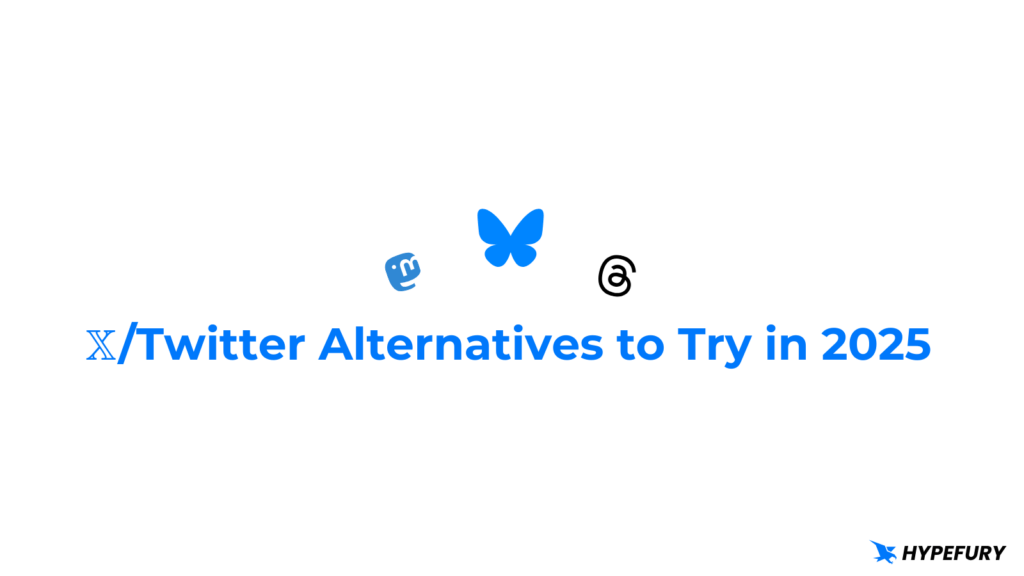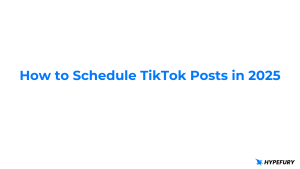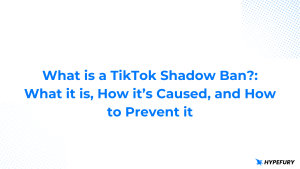
Bluesky
Bluesky is a decentralized micro-blogging social media platform that allows users to share text up to 300 characters, images, and videos.
It is similar to how 𝕏/Twitter worked back in the day, and its design closely resembles 𝕏/Twitter with a similar shade of blue color that 𝕏/Twitter had.
This resemblance is due to Bluesky being built in close partnership with the former 𝕏/Twitter CEO Jack Dorsey while he was still at 𝕏/Twitter back in 2019.
Jack Dorsey, then-CEO of 𝕏/Twitter, started Bluesky as a research project to decentralize 𝕏/Twitter. In 2021, Bluesky became an independent company.
Bluesky’s development accelerated in 2022 when Elon Musk acquired 𝕏/Twitter and severed the ties with the company. This led to Bluesky launching an invite-only service in February 2023 and opening registrations to the public a year later, in February 2024.
Bluesky currently has 24 million users and over 700 million posts by users.
What Makes Bluesky Unique
1. Decentralization
Decentralization is one of the significant features that differentiates Bluesky from 𝕏/Twitter and other social media platforms.
Decentralization means that Bluesky is not controlled by one person or company but by its users collectively.
Anyone can run Bluesky on their server and host all their data there if they choose to.
2. User control
Not only do users have control because Bluesky is decentralized, but users also have control over other aspects of the platform, such as their feed and data.
Unlike 𝕏/Twitter, whose algorithm is focused on the company’s benefits (such as promoting certain content, ads, etc.), Bluesky users have control over their feed and choose what to see.
Furthermore, users can create their own feeds to see the content they want.
3. Open-source and Transparency
Bluesky is open-source and built on AT Protocol, which is also open-source.
This allows users to learn how the app works without being kept in the dark, as is the case with other platforms.
This openness fosters a vibrant community of creators who can express themselves freely without the fear of being banned or censored.
Furthermore, developers can create third-party applications that enhance the Bluesky experience for all users.
Pros and Cons of Bluesky
Pros
Decentralization
Unlike traditional social media platforms, Bluesky is decentralized. This means it’s not controlled by a single company, making it more resilient to censorship and manipulation.
Open Source
Bluesky’s open-source nature allows developers to contribute to its growth and innovation, ensuring a constant stream of new third-party Bluesky apps.
User Control
Users have more control over their content and the algorithms that shape their experience. This includes the ability to customize their feeds and prioritize specific content.
Community-Driven
The platform is built around a strong sense of community, fostering a more positive and inclusive environment.
Cons
Limited Features
As a relatively new platform, Bluesky lacks some of the features that users have come to expect from established social media platforms, such as advanced search, robust analytics, and saving bookmarks.
Smaller User Base
Compared to Twitter, Bluesky has a smaller user base, which can limit its reach and impact.
Threads
Threads, an Instagram app, is a text-based social media platform that allows users to share posts and engage in conversations with other users.
Threads was built by the Instagram team, and you need an Instagram account to create a Threads account.
When it was released in July 2023, Threads took the world of social media by storm, reaching 100 million users within the first 10 days of its release.
What Makes Threads Unique
1. Cross-posting to Instagram
One of the most convenient features of Threads is the ability to cross-post your Threads post content to Instagram as Instagram stories.
2. Verified Status Sync
Since Threads depends on Instagram, being verified on Instagram also makes you verified on Threads.
You don’t have to repeat the process to get a blue check mark.
This is good news for all verified users because they instantly have their status on Threads as well.
3. Instagram Promotion
Instagram actively promotes Threads posts on its platform. This can help your content reach a wider audience and increase your following on Threads.
Pros and Cons of Threads
Pros of Threads
1. Familiar Interface
If you’re used to Instagram, you’ll feel at home on Threads. The interface is intuitive and easy to navigate.
2. Verified Status Sync
If you’re verified on Instagram, you’ll automatically be verified on Threads, boosting your credibility.
3. Instagram Promotion
Instagram often promotes Threads posts on its platform, significantly boosting your content.
Cons of Threads
1. Limited Functionality
While Threads offers a basic social media experience, it lacks some of the advanced features found on Twitter, such as direct messaging and analytics.
2. Dependence on Instagram
Threads is closely tied to Instagram. You can’t have a Threads account without an Instagram account. And deleting your Instagram account will also delete your Threads account.
3. Algorithm-Driven Feed
The algorithm on Threads can sometimes prioritize less relevant content, making it challenging to keep up with the conversations you’re interested in.
Mastodon
Mastodon is a decentralized and open-source micro-blogging social media platform that consists of different independent servers loosely organized according to themes, topics, and interests. Mastodon was founded in 2016 by Eugen Rochko, a German software developer, but it gained popularity after Elon Musk acquired 𝕏/Twitter. Mastodon works by allowing users to join different servers/instances, which are moderated by the server owners. These servers are interconnected (federated), forming the decentralized part. Users on different servers can interact with other users on other servers. They can follow each other, see posts, and message each other. This act of having different servers makes Mastodon decentralized, and thus, control is distributed to different people rather than a single person or company.Pros and Cons of Mastodon
Pros of Mastodon
1. Decentralization
Unlike traditional social media platforms, Mastodon is decentralized. This means it’s not controlled by a single company, making it more resilient to censorship and manipulation.2. Open Source
Mastodon’s open-source nature allows developers to contribute to its growth and innovation, ensuring a constant stream of new features and improvements.3. Community-Driven
The platform is built around a strong sense of community, fostering a more positive and inclusive environment.4. Customization
Users can customize their experience by choosing different servers, each with its own rules and culture.Cons of Mastodon
1. Steep Learning Curve
The decentralized nature of Mastodon can be confusing for new users, requiring some technical understanding to navigate the platform effectively.2. Smaller User Base
Compared to Twitter, Mastodon has a smaller user base, which can limit its reach and impact.3. Moderation Challenges
Decentralization can make it challenging to moderate content effectively and prevent the spread of misinformation.Summary Comparison of 𝕏/Twitter Alternatives
| 𝕏/Twitter | Bluesky | Threads | Mastodon | |
|---|---|---|---|---|
| Year Founded | 2006 | 2023 | 2023 | 2016 |
| CEO | Elon Musk | Jay Graber | Adam Mosseri | Eugen Rochko |
| No. of Users | 611M | 24M | 275M | 10M |
| Decentralized | No | Yes | No | Yes |
| Open-source | Algorithm only | Yes | No | Yes |
Now that we have seen the features of all 𝕏/Twitter’s alternatives, the decision comes down to you on what platform you want to move to or try.





